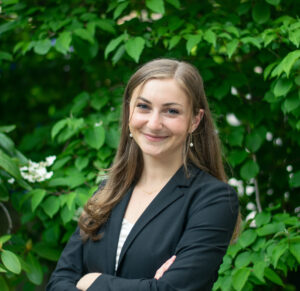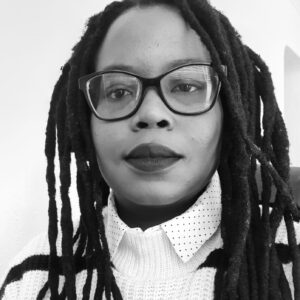For this episode of Citizens’ Climate Radio, interns Ruth Abraham and Lila Powell take over the show and take a deep dive into the world of carbon pricing.
Citizens’ Climate Lobby’s carbon pricing page states: “A strong, economy-wide price on carbon could reduce America’s carbon pollution by 50% by 2030, putting us on track to reach net zero [carbon production] by 2050.”
Carbon pricing is an economic solution to climate change. When Marshall Saunders first envisioned the creation of CCL, cap-and-trade was the primary way lawmakers heard about carbon pricing. But through relentless messaging and volunteer lobbying, the discussion has shifted to carbon fee and dividend.
The ultimate goal? Incentivize both businesses and individuals to reduce their greenhouse gas emissions. Citizens’ Climate Lobby advocates for a carbon fee and dividend, an economy-wide fee that is then returned to citizens. At the point of extraction, a fee will be placed on fossil fuels, incentivizing both businesses and people to slowly but surely rely on renewables. This collected store of cash will then be distributed to individuals, flowing through the economy.

Naomi Shimberg
Naomi Shimberg is a self-described aspiring economist who hopes to research the design of environmental and energy policy.
A recent graduate at Yale with a B.A. in Ethics, Politics, and Economics, Shimberg was the senior producer at Pricing Nature where she produced and hosted episodes of Pricing Nature, a podcast on the economics of climate change. She spends her time explaining externalities and the infamous “social cost of carbon.” Shimberg also establishes that environmental inequities are essential to determining an appropriate climate price. Furthermore, she mentions that while it is efficient in reducing pollution it’s not an entirely equitable tool.

Nokwanda Maseko
Nokwanda Maseko is now a Senior Economist at Trade and Industrial Policy Strategies’ with a background in development economics. Nokwanda conducts economic research, with a focus on industrial policy, trade, and climate change. Gender and the Just Transition in South Africa is a topic Nokwanda enjoys and is able to work on professionally. In this episode, Nokwanda says that although carbon pricing can help reduce emissions and promote innovation, it can also potentially increase costs for marginalized communities. Nokwanda discusses how general development as well as the transportation, agriculture, and energy production sectors in South Africa have several factors to consider when envisioning a green and equitable future.
The benefits of carbon pricing include but are not limited to affordable clean energy, saved lives due to the restoration of clean air, and the innovation of American businesses.
Dig Deeper
- Why Put a Price on Carbon? CCL
- Pricing Nature- Naomi’s Podcast
- Pricing Nature podcast Curriculum Supplement
- Pricing Negative Externalities
- Just transition in South Africa: the case for a gender just approach
- Unemployment and sustainable livelihoods: Just Transition interventions in the face of inequality
- What is just transition and why is it so important?
- Carbon Price Necklace by Dane Meyers as seen at the SE Regional Conference and June International Conference
Nerd Corner
Dana Nuccitelli highlights climate research (and makes it understandable) for fellow nerds and the nerd curious! In this episode Dana explains the basics behind addressing pollution and equity through carbon fee and dividend.
Check out Dana’s post about how far and fast a price on carbon can drive down emissions within the United States here.
Good News Story
Citizens’ Climate Radio host, Peterson Toscano, shares good news about the Conservative Climate Caucus in the House of Representatives. It is much bigger than most people could have ever imagined!
If you have an idea for a Good News Story, contact us: radio@citizensclimate.org
Listener Survey
We want to hear your feedback about this episode. After you listen, feel free to fill in this short survey. Your feedback will help us as we make new decisions about the content, guests, and style of the show. You can fill it out anonymously and answer whichever questions you like.













Add new comment